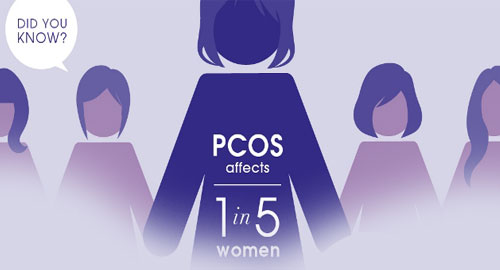- Clinic:
- 0733 945 717
- 0739 434 212

Virtual Gynecological health care
December 2, 2024
Is it safe to walk through airport screening machines while I’m pregnant?
December 11, 2024Polycystic ovarian syndrome (PCOS), fertility implications

Polycystic ovarian syndrome (PCOS) is a fairly common condition. The main symptoms include irregular or absent menstrual periods, reduced fertility, acne and abnormal hair distribution. Some women will be overweight, and find it difficult to maintain a normal body mass index (BMI).
The cause of PCOS is not known, but sometimes runs in families. The symptoms are related to abnormal hormone production (hence the term hormone imbalance). The diagnosis is made following typical symptoms, hormone tests and ultrasound imaging of the ovaries. The ovaries are usually enlarged with multiple follicles (small cysts), hence the description polycystic ovaries. However, some women will have a polycystic appearance of the ovaries without having the syndrome.
Failure to ovulate regularly is the main cause for delay in conceiving in women with PCOS. Young women with PCOS and below 35 years, who occasionally have periods, may wait for about six months for spontaneous conception. Those who are overweight should aim to optimize their BMI to between 19 and 25. This can be achieved by increased physical activity combined with a healthier diet. Losing at least five percent of your weight may lead to spontaneous ovulation and conception.
If attaining a normal BMI does not lead to spontaneous conception within a few months, fertility treatment usually becomes necessary. The initial recommended treatment is the use of ovulation tablets. Injectable hormones can also be used, but this is reserved only for those who don’t ovulate on the use of tablets. You should only get ovulation medications prescribed by your gynecologist following an initial appropriate evaluation. You will also require monitoring to ensure that you are responding appropriately on the prescribed medications. Self-medication should be resisted. Conception is usually expected within 3 to 6 months following correction of ovulation.
If the initial simple treatment fails, this serves as a trigger for additional fertility evaluation and consideration for second line treatment options. At this point, consulting a fertility specialist is advisable. If not initially done, tests to confirm normality of sperms and fallopian tubes should be done. Surgical treatment, referred to as ovarian drilling, may also be considered to enhance resumption of normal periods and ovulation. A further waiting period, in anticipation of conception after surgery, may be advised.
Advanced assisted conception with IVF becomes the main option for treatment when other approaches fail, or if additional infertility factors become apparent. Success rates tend to be good, though there can be associated additional risks with IVF mainly related to excessive ovarian response to hormonal stimulation. The IVF team would normally put in place various strategies to ensure the safety of your treatment.
Dr Alfred Murage is a Consultant Gynecologist and Fertility Specialist. amurage@mygyno.co.ke
Take a fertility test today